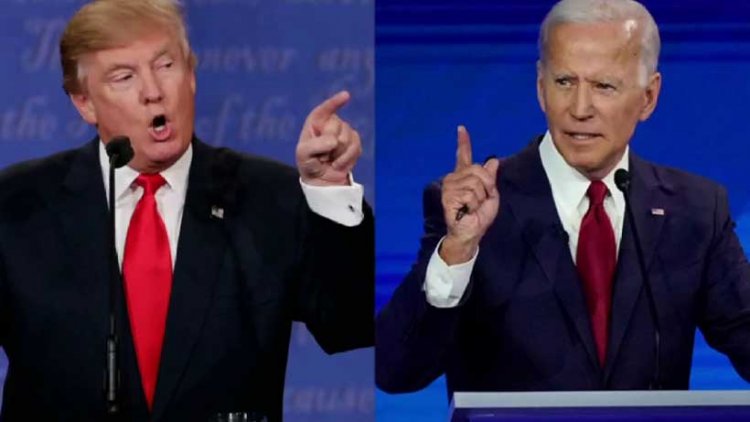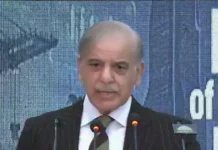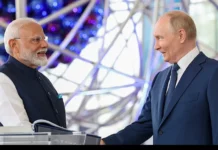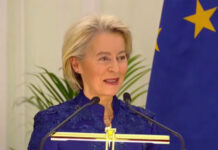NICOSIA: The New York Times reported that on November 12, US President Donald Trump asked his senior advisers to examine options for airstrikes against Iran’s main nuclear facility at Natanz. Trump convened the meeting just one day after the International Atomic Energy Agency inspectors reported a significant increase in Iran’s nuclear material.
Fortunately, Trump’s advisers persuaded him that the risks of military action against Iran are very high. Had a strike against Iran actually taken place, apart from the fact that would be a clear violation of international law, it would also have scuttled any new deal with Iran, President-elect Joe Biden is pondering.
The nuclear deal, known as Joint Comprehensive Plan of Action (JCPOA), signed in 2015 with the United States, Germany, France, Britain, China and Russia, allows Iran to keep a stockpile of 202.8 kilograms. Inspectors reported that the stockpile increased to 2,442 kilograms, while Iran continues to enrich uranium to a purity of up to 4.5 per cent, higher than the 3.67 per cent allowed under the deal. It should be noted that low enriched uranium between 3 and 5 per cent can be used for nuclear power, but for nuclear weapons 90 per cent purity is required.
According to New York Times, Trump had to be persuaded not to order the attack by Vice President Mike Pence, Secretary of State Mike Pompeo, Acting Defense Secretary Chris Miller, and Chairman of the Joint Chiefs Gen. Mark Milley. They pointed out that a military strike would have no basis on international law, while the UN Security Council in all probability would not approve a military action against Iran.
Iranian Government Spokesman Ali Rabiei, responding to the NY Times’ report, said that any US attack on Iran would face a “crushing” response.
Meanwhile, the US Administration announced fresh sanctions on numerous Iranian individuals, including the Intelligence Chief and a charitable foundation linked to Iran’s Supreme Leader Ayatollah Ali Khamenei.
Trump had withdrawn from JCPOA in May 2018 and imposed sanctions, which according to US Secretary of State Mike Pompeo cut vital and lucrative Iranian exports by some 75 per cent, denying the regime of USD 70 billion in oil. Iran continued to comply with the provisions of JCPOA until July 2019, and then started violating parts of the deal, but last January following the assassination by the US of Major General Qassem Soleimani in Baghdad, it ended all compliance with JCPOA.
As Trump was mulling over an attack on Iran, the Israelis carried out strikes in Syria on Iranian-backed militias. On 18 November, the Israeli Air Force hit targets of the Iranian Revolutionary Guards’ Quds Force and the Syrian Army in the Golan Heights and Damascus International Airport, as retaliation for the planting of explosives near an Israeli military position in the Golan Heights.
Undoubtedly, if a military attack on Iran took place during Trump’s final days in office, it would have certainly derailed Joe Biden’s stated election promise to handle Iran “the smart way” and to give the Iranian regime “a credible path back to diplomacy”.
Karim Sadjapour, a senior fellow at the Carnegie Endowment for International Peace, says that as both a Senator and a Vice President Biden’s views on Iran was always realistic. “He has no illusions about the nature of the Iranian regime and the challenges it poses to US interests, but he’s also been a consistent advocate of direct dialogue with Iran…. If Tehran shows a willingness to return to the status quo ante, no questions asked, it would strengthen the argument of those in Washington who favour an immediate return to the JCPOA.
But if Tehran insists on being compensated for the sanctions imposed on Iran during the Trump era, or if Iranian leaders attempt to expand their nuclear program or carry out regional provocations in an attempt to expand their nuclear programme, or carry out regional provocations in an attempt to strengthen their bargaining position or signal that they are not weak, it will have the opposite effect.”
Paul Adams, BBC diplomatic correspondent points out that Iran, which “has weathered the Trump storm, has its own demands. Officials say the removal of sanctions won’t be enough. Iran expects to be compensated for two-and-a-half years of crippling economic damage….. The JCPOA was never a bilateral affair. Its other international sponsors – Russia, China, France, the UK and Germany, plus the European Union – are all, in one way or another, invested in its future.
The European sponsors, in particular, are anxious to see Washington once more committed to the deal’s success. The UK, France and Germany (the “E3″) have tried to keep the deal alive during the Trump years and could now play a role in negotiating the terms of Washington’s return. But in London, Paris and Berlin, there’s a recognition that the world has moved on and that a simple return to the original deal is unlikely.”
A deal between Biden and the Tehran government is possible but could be much more difficult if Tehran insists on demanding compensation for US withdrawal from the deal, or if Biden raises the issues of the Iranian ballistic missiles or the Tehran supported militias in the region. (ANI)







